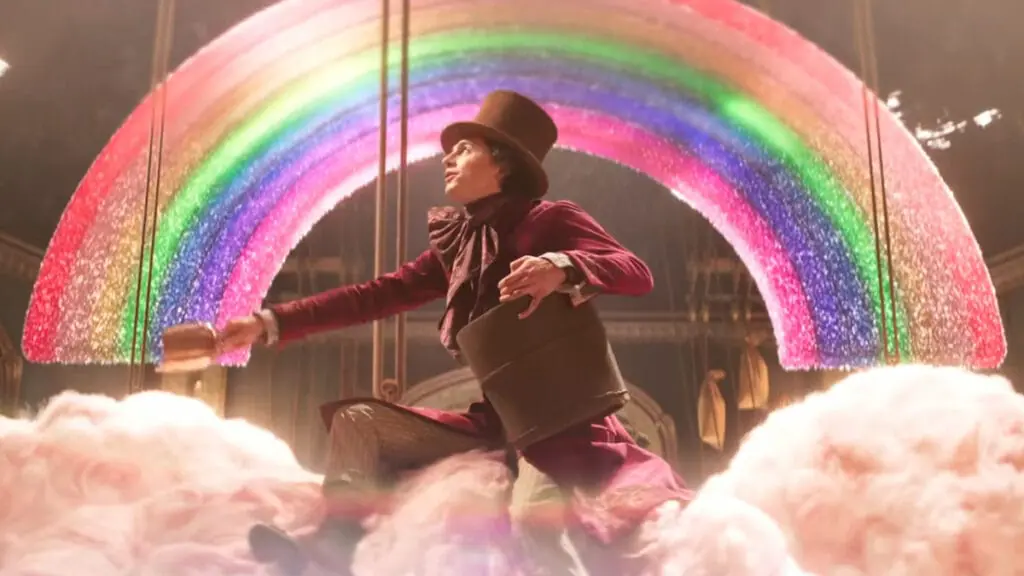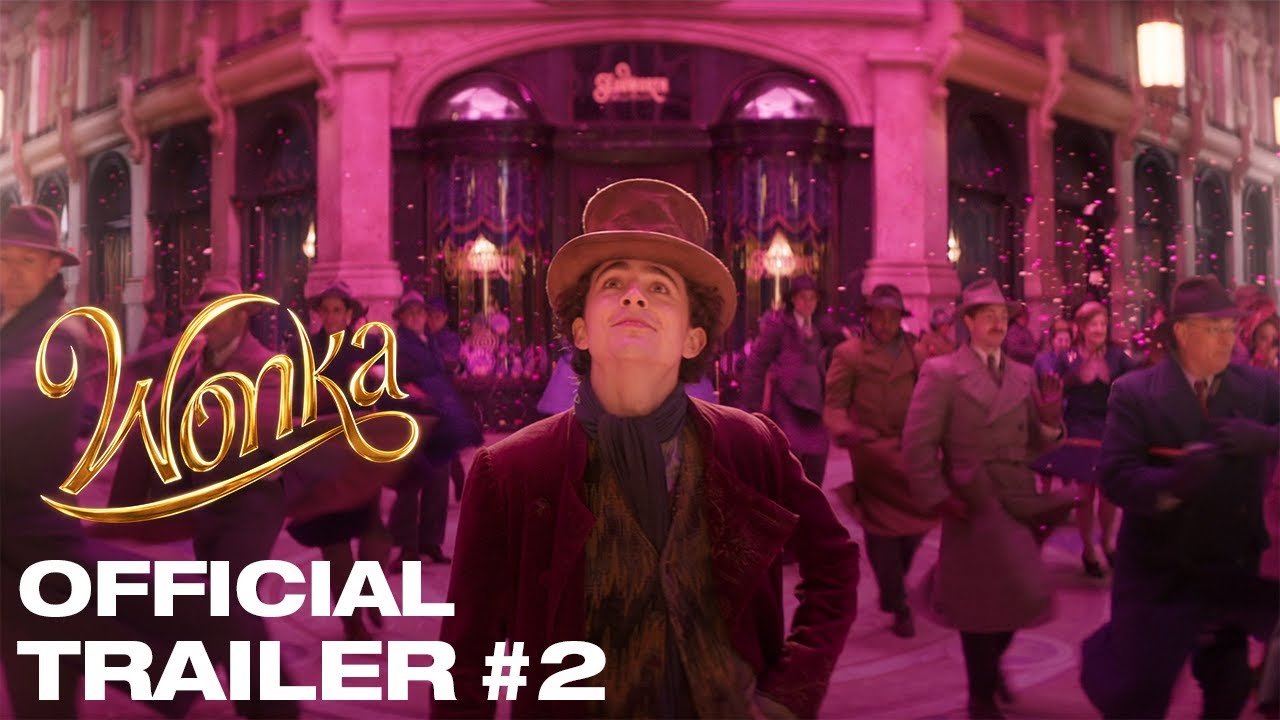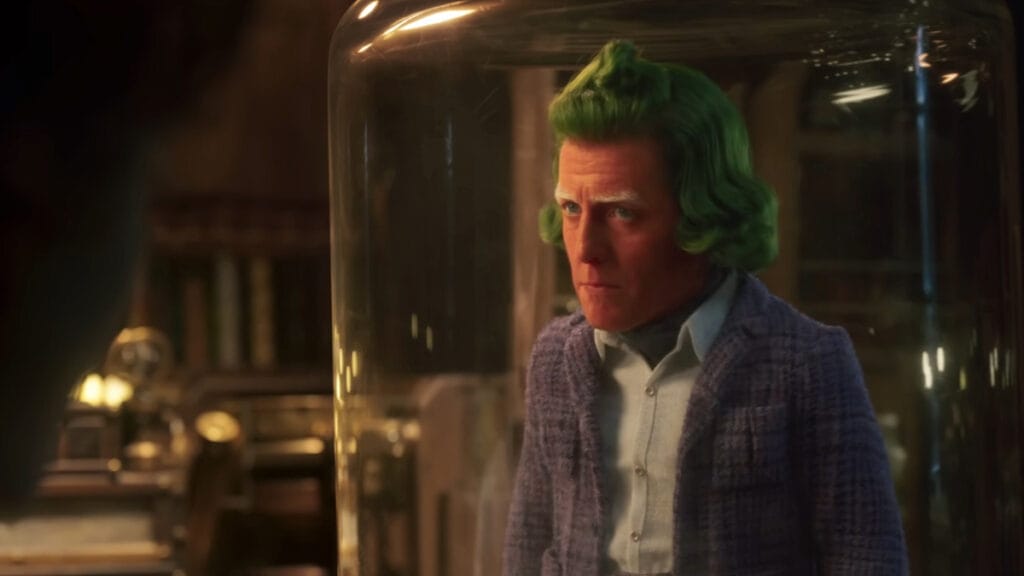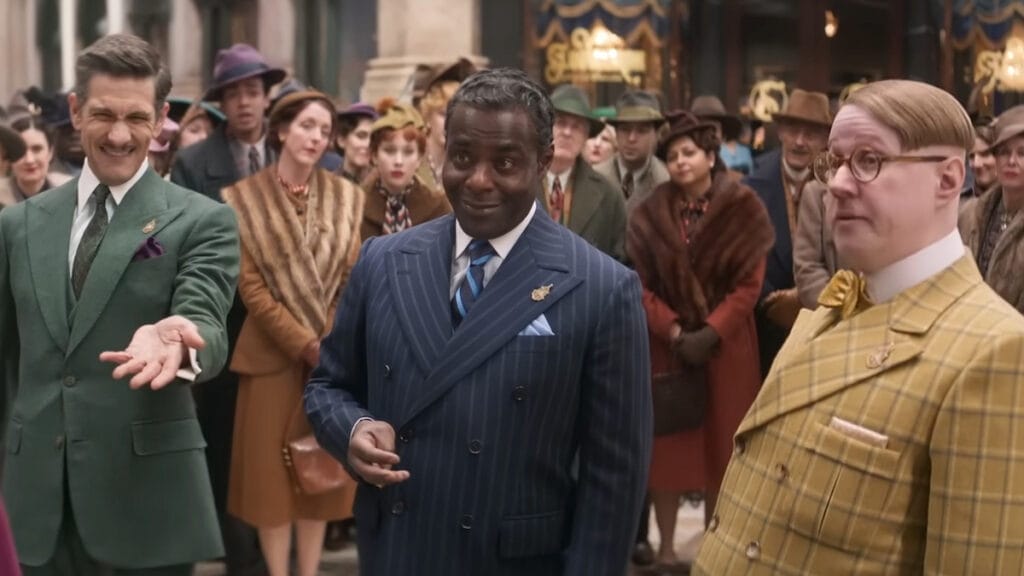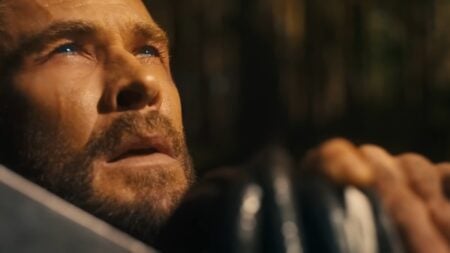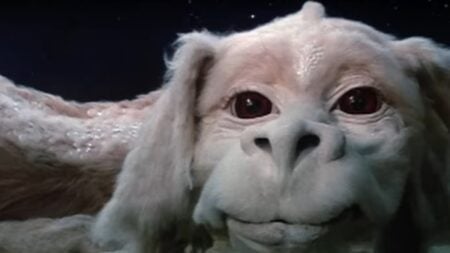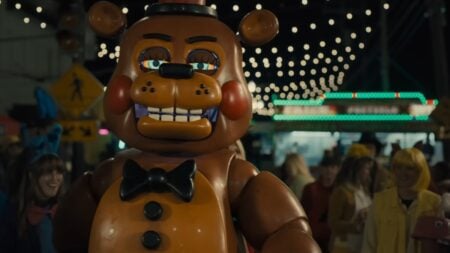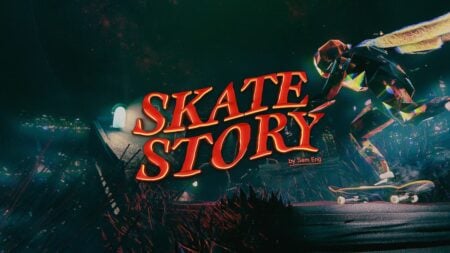Skip To...
The original adaptation of Roald Dahl’s 1964 novel Charlie and the Chocolate Factory, Willy Wonka & the Chocolate Factory, is beloved amongst fans of the story and fans of film alike. Now over 50 years later, Wonka is a prequel that follows a younger version of the chocolatier. The film was directed by Paul King (Paddington), and written by King and Simon Farnaby (Ghosts). Timothée Chalamet (Dune) plays Willy Wonka in this musical fantasy film, which shows how he went from a penniless young man to the world’s greatest chocolate maker.
Things aren’t made easy for Wonka, as three rival chocolatiers do everything they can to stop his success. Paterson Joseph (Timeless), Mathew Baynton (Ghosts), and Matt Lucas (Little Britain) play the rival chocolatiers, while Olivia Colman (The Crown) plays Mrs. Scrubbit, an evil innkeeper. Wonka isn’t alone in his adventure, as he is joined by several other people who are kept in servitude by Mrs. Scrubbit, including the young Noodle (Calah Lane). Keegan-Michael Key (Key and Peele) also plays the Chief of Police, who is being bribed by the chocolatiers to disrupt Wonka’s sales.
Fun For New Wonka Fans
Differing from the first two film adaptations of the original novel, this film doesn’t tell the same story. We meet a Wonka who hasn’t built his empire yet, though he is still a great chocolatier with a flair for invention. Wonka is much more fantastical than the original film, as Wonka does infuse most — if not all — of his chocolate with a touch of magic. The story is heart-warming, Wonka is trying to follow his dreams, dreams that he shared with his departed mother (Sally Hawkins).
Those who oppose him are crooks who are restricting the chocolate market so that the poor can’t afford any. The story is done well, with a nice payoff at the end of the film. It is a little cookie-cutter, but it’s a film that’s primarily aimed at children. Wonka is also fairly funny, with running gags like the Chief of Police gaining more and more weight throughout the movie. Most of the jokes didn’t land with me, but some did, and I didn’t hate any of them.
Chalamet could never have matched Gene Wilder’s original performance, but these are clearly different versions of the same character. Chalamet never does an impression of Wilder’s character, instead doing a bright-eyed childlike version of Wonka. He nails the more vulnerable parts of the performance, and is genuinely joyful to watch, especially in the scenes where he sings. Hugh Grant’s Oompa Loompa is also good, but while he looks like an Oompa Loompa, it’s the grumpy Hugh Grant character that he’s been accustomed to playing over the years. But it fits in the film, so he makes for an entertaining watch.
Cursed Nostalgia
Unfortunately, nostalgia plagues Wonka. There are many references to Willy Wonka & the Chocolate Factory and they fall into two categories: the subtle ones, and the heavy-handed ones. Right from the start it’s clear that the film is going to lean into the popularity of the first film, which came out over 50 years ago. As Wonka starts, the first notes of “Pure Imagination” play, the song sung by Wilder in the original film. Chalamet sings his own version of the song before the film’s end, but those notes reappear repeatedly.
Wonka even goes so far as to include lines from the original film, repeated by different characters in a different context. Ordinarily, homages would be fine, but they go too far here. Some moments allude to different set pieces from the original film, which is fine. We should be able to watch the movie and enjoy what we’re seeing, rather than being constantly reminded that the older film exists. It seems counterproductive to force your audience to think of a better movie that frequently. If the notes from “Pure Imagination” were replaced by an original score, it might’ve made for a better choice.
The “Pure Imagination” inclusion even lessens the main song of the film, “A World of Your Own” and the set piece that accompanies it. It feels like a shadow of Wilder’s introduction of the factory because we’re reminded of it so often. However, story elements that reference the other films like the “Oompa Loompa” song work well. It’s not like a prequel won’t give some context as to how the characters end up in the original, that much is expected.
Entertaining Enough To Stand on Its Own
Most — if not all — of the musical set pieces in Wonka were quite fun and were in line with the rest of the film both thematically and tonally. The story does occasionally get sad, but most of the film is wonderful and hopeful. Chalamet and Lane are a likable duo that keeps the film engaging enough not to be stale. Wonka is also fairly well-paced, with the songs breaking up the story beats enough to stay somewhat interesting.
The costume design was top-notch, and while Wonka’s suit was the standout, the suits of the other chocolatiers and the uniforms from Wonka’s shop were also eye-catching. Most of the visual effects were well-done, but Grant’s Oompa Loompa could be a little jarring at times. Some of the chocolate and the more fantastical elements of the movie also looked a little weird, and I feel like more practical effects could have worked better.
When Wonka is paving its own way, it’s an entertaining movie that was a pleasure to watch. If you’re a fan of the original novel, or even of one of the previous films, you should go to a theater to watch this. It’s also a great film to take your children to, but if you’re not a fan of musicals maybe wait until this one comes out on digital services. Wonka releases in theaters on December 15, 2023.
Wonka
Wonka tells a fantastical tale through a heart-warming story and great songs, but it leans too heavily on referencing the original film.
Pros
- Chalamet holds his own as Wonka, and he nails the songs.
- The original music is great, and the songs don't feel random.
- The story is simple, but engaging.
Cons
- References the original film too much, and too heavy-handedly.
- Some of the effects look jarring and out of place.

